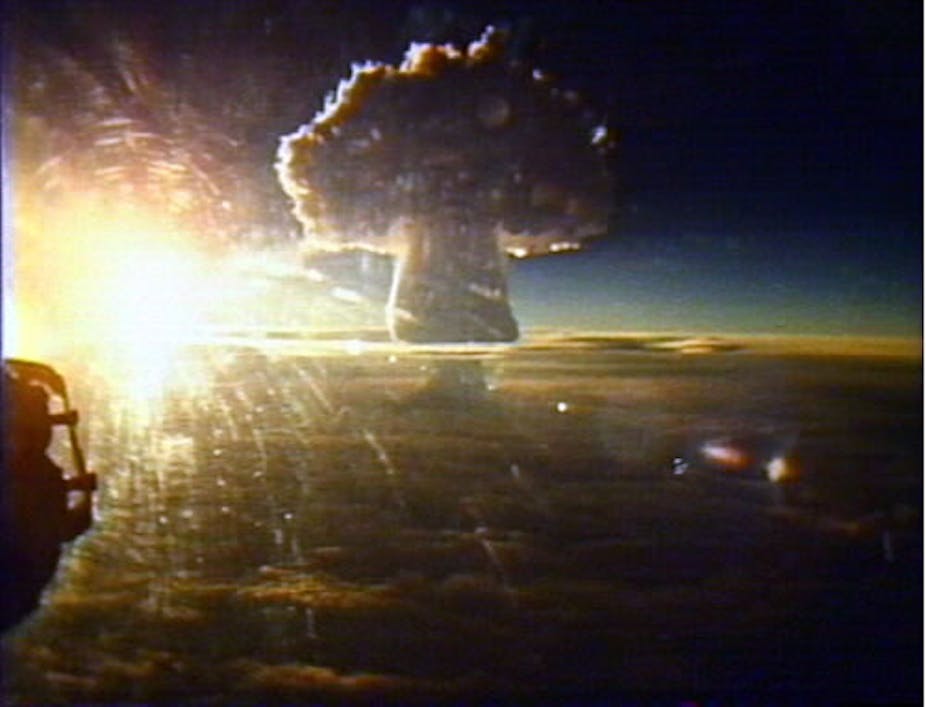As the Australian Labor Party contemplates opening sales of uranium to India, it would be wise for our policy-makers to think more broadly about the long-term possibilities for Australia as a provider of uranium.
There are a number of problems of selling uranium to anyone, let alone a non-signatory to the Nuclear Non-Proliferation Treaty (NNPT) and one that has nuclear weapons capability. One is the disposal risk of spent radioactive fuel, especially in countries of high populations, high population densities and geological instability.
Another is the risk of fissile material falling into the “wrong hands.” Yet another is radioactive material being processed for use in nuclear weapons. Moreover, our “safeguards” against these things are left to an out-of-date, virtually unenforceable and deeply discriminatory treaty and its derivative instruments.
If India is OK, why not Pakistan?
At the same time, India’s huge population and large pockets of severe under-development are in desperate need of high-intensity energy sources with low carbon emissions. Nuclear probably fits the bill better than anything else.
India is not alone in facing this need. Pakistan, another state armed with nuclear weapons is in the same boat. Yet for all the problems listed above, it is hard to imagine Pakistan becoming a customer of Australian uranium exporters.
However, these problems are not insoluble. The re-thinking of our uranium policy is the time to consider alternative approaches and the potentially enormous economic opportunity such approaches might present for Australia.
Value added uranium
Instead of trying to manage the risks of yellow-cake sales to more or less desirable customers with more or less capacity to securely process, monitor and dispose of the material, Australia could become a whole-of-life provider of fissile material for power generation.
Instead of selling stuff dug out of the ground, Australia could become not only the miner but the processor, transporter, custodian, marshal and disposer as well.
More to the point, by controlling the whole uranium lifecycle we would be virtually eliminating the possibility for misuse at any point in the supply chain. It would be feasible to provide the processed and monitored fuel to any country with nuclear power generation capability, such as Pakistan and Iran.
In fact, if nuclear energy programs in the countries less trusted by the West are purely about electricity production, it is likely that both they, and countries like the United States, would welcome the service as demonstration of good intentions.
Further, it has the potential to make nuclear generated electricity more accessible to developing countries with inadequate energy supplies because of the dramatically reduced upfront investment required for processing and disposal facilities. It also vastly increases the return to Australia on our uranium assets.
Cleaning up after ourselves
While there is an emotional argument against storing of the waste in Australia, the reality is that we are one of the most geologically stable land masses on the planet, one of the least populated and certainly have huge areas of minuscule population density – and we have the technical capacity and levels of governance to do it better than probably anyone else. There is also a moral issue here. If we are to sell the dangerous goods do we not also have responsibility for how these “goods” eventually end up?

There are wider issues that would have to be addressed with such a policy, over and above convincing the NIMBYs (Not In My Back Yard) that disposing of the waste in Australia is the least bad of all options. First and foremost convincing our neighbours of our benign intentions. Especially since we have for so long eschewed nuclear power generation in Australia.
The recent announcement of our closer-than-ever security co-operation with the United States almost certainly won’t help in that regard either. Nevertheless, the prospect of assistance with clean and efficient power generation to help meet their booming energy demands must count for something positive.
Perhaps the bigger question that should be put forward at the Labor Party Conference next week is not whether we want to sell uranium to India but whether we believe in the future of nuclear energy for developing countries—if not for ourselves too. If the answer is “we do”, then we should seriously consider the opportunity presented by changing the paradigm of the uranium trade for the better of all parties.

